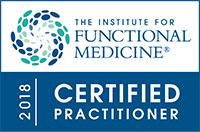Gratitude is more than a fleeting feeling or a polite habit—it’s a transformative practice that can profoundly improve your physical and mental well-being. From enhancing sleep quality and boosting immune function to lowering stress levels, cultivating gratitude can be one of the most powerful tools in your wellness toolkit. Dr. Joe Dispenza notes, “When you’re feeling gratitude and inspiration, your heart is open and your energy goes up. Gratitude is the ultimate state of receivership,” meaning that it opens us up to even more positivity and growth.
The Science Behind Gratitude and Health
Practicing gratitude can trigger powerful changes in the brain, activating areas associated with reward and motivation. When you experience thankfulness, your brain releases dopamine and serotonin, two neurotransmitters that naturally boost mood. This release creates a cycle of positivity, encouraging you to continue focusing on what’s good in your life. Research also shows that gratitude reduces the release of cortisol, our primary stress hormone, which can lower blood pressure and reduce inflammation, protecting against chronic conditions like hypertension, heart disease, and depression. And as Dr. Dispenza’s work emphasizes, living with gratitude creates a shift in perception, making us more resilient and better able to handle life’s challenges.
Physical Benefits of Gratitude
- Improved Sleep Quality: Grateful people report better sleep. Taking time to reflect on positive moments before bed can calm your mind, paving the way for restorative rest.
- Reduced Inflammation: Gratitude lowers stress, which in turn reduces inflammation markers in the body, protecting against many chronic illnesses.
- Better Heart Health: Practicing gratitude has been associated with lower blood pressure and heart disease risk, supporting your cardiovascular system in its natural fight against stress.
Mental and Emotional Benefits
- Increased Resilience: Dr. Dispenza’s research shows that gratitude shifts our perception, helping us find meaning even in challenges. This mindset makes us more adaptable and resilient in tough times.
- Enhanced Mental Clarity: By focusing on positive emotions, gratitude helps reduce negative feelings like envy and frustration, increasing clarity and mental focus.
- Strengthened Relationships: Expressing appreciation to others fosters connection and trust, deepening your relationships and spreading positivity.
Simple Ways to Practice Gratitude Daily
- Start a Gratitude Journal: Each day, jot down three things you’re grateful for. This reinforces positivity and helps shift your focus to the good in your life.
- Express Thanks: Whether it’s a coworker or a family member, saying thank you not only boosts their mood but also makes you feel more connected.
- Gratitude Meditation/Prayer: Set aside a few minutes to reflect on the things that bring joy and comfort. Visualize them clearly and feel the gratitude in your heart.
- Shift Your Perspective: When challenges arise, ask yourself, “What can I be grateful for in this moment?” This practice can help turn obstacles into opportunities for growth.
- Reflect on Wins: End each day by reviewing your “wins”—moments that went well or brought joy. It’s a calming way to close out your day on a positive note.
Make Gratitude a Part of Your Wellness Routine
Integrating gratitude doesn’t need to be complicated. Start with a simple mental “thank you” each morning, and over time, explore adding journaling or meditation to deepen your practice. Dr. Dispenza emphasizes, “Gratitude is the ultimate state of receivership.” When we live with a thankful heart, we not only boost our health but also invite more positivity into our lives, enriching our relationships and enhancing our overall well-being.
This season, make gratitude a priority and witness the transformative power it brings to your health, perspective, and life.


